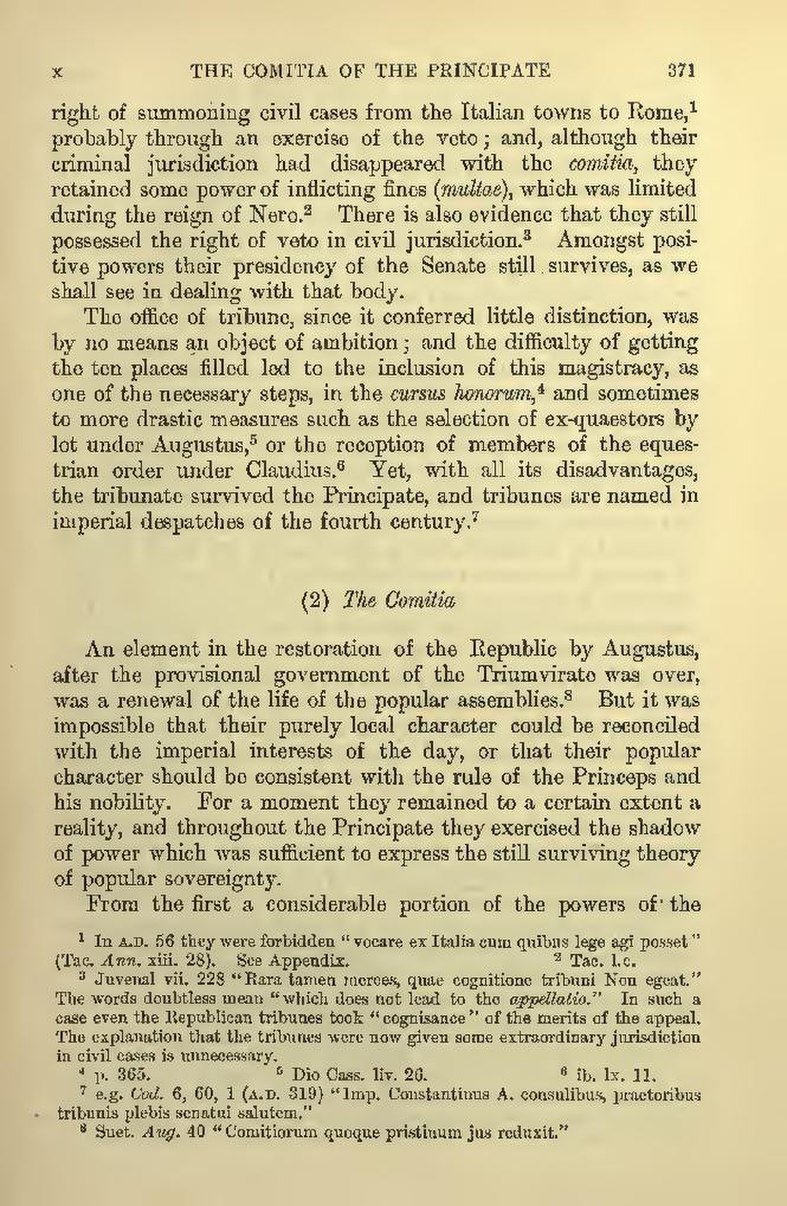right of summoning civil cases from the Italian towns to Rome,[1] probably through an exercise of the veto; and, although their criminal jurisdiction had disappeared with the comitia, they retained some power of inflicting fines (multae), which was limited during the reign of Nero.[2] There is also evidence that they still possessed the right of veto in civil jurisdiction.[3] Amongst positive powers their presidency of the Senate still survives, as we shall see in dealing with that body. The office of tribune, since it conferred little distinction, was by no means an object of ambition; and the difficulty of getting the ten places filled led to the inclusion of this magistracy, as one of the necessary steps, in the cursus honorum,[4] and sometimes to more drastic measures such as the selection of ex-quaestors by lot under Augustus,[5] or the reception of members of the equestrian order under Claudius.[6] Yet, with all its disadvantages, the tribunate survived the Principate, and tribunes are named in imperial despatches of the fourth century.[7] (2) The Comitia
An element in the restoration of the Republic by Augustus, after the provisional government of the Triumvirate was over, was a renewal of the life of the popular assemblies.[8] But it was impossible that their purely local character could be reconciled with the imperial interests of the day, or that their popular character should be consistent with the rule of the Princeps and his nobility. For a moment they remained to a certain extent a reality, and throughout the Principate they exercised the shadow of power which was sufficient to express the still surviving theory of popular sovereignty.
From the first a considerable portion of the powers of the
- ↑ In A.D. 56 they were forbidden "vocare ex Italia cum quibus lege agi posset" (Tac. Ann. xiii. 28). See Appendix.
- ↑ Tac. l.c.
- ↑ Juvenal vii. 228 "Rara tamen merces, quae cognitione tribuni Non egeat." The words doubtless mean "which does not lead to the appellatio." In such a case even the Republican tribunes took "cognisance" of the merits of the appeal. The explanation that the tribunes were now given some extraordinary jurisdiction in civil cases is unnecessary.
- ↑ p. 365.
- ↑ Dio Cass. liv. 26.
- ↑ ib. lx. 11.
- ↑ e.g. Cod. 6, 60, 1 (A.D. 319) "Imp. Constantinus A. consulibus, praetoribus tribunis plebis senatui salutem."
- ↑ Suet. Aug. 40 "Comitiorum quoque pristinum jus reduxit."
